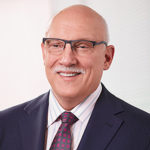A Yorktown-based consultancy is suing the State Council of Higher Education for Virginia and the firm conducting an investigation into Virginia Military Institute‘s racial attitudes and practices, a contract the plaintiff unsuccessfully bid on last year.
In a civil suit filed Feb. 11 in Richmond Circuit Court, the Center for Applied Innovation LLC (CAI) seeks an injunction against Barnes & Thornburg LLP that would halt all its work on the VMI probe, and accuses SCHEV of illegally favoring the Indiana-based law firm for the $1 million contract.
According to the suit filed on CAI’s behalf by Richmond-based attorney Patrick C. Henry II, Barnes & Thornburg, which has offices around the country, was not authorized to do business in Virginia on Nov. 20, when it submitted its bid for the VMI probe following a request for proposals run by SCHEV. The company, an Indiana-based limited liability partnership (LLP), received its Virginia State Corporation Commission qualification to perform work for the state on Nov. 25, Henry argues in the suit.
The complaint also accuses SCHEV of limiting CAI President Robert C. Morris Jr.’s access to the procurement records he sought to examine when protesting the contract’s award to Barnes & Thornburg, granting Morris only two hours to look at more than 1,000 pages of documents in person at SCHEV’s offices in Richmond in December. The suit says that Morris has underlying health conditions that could place him at increased risk of severe illness from the coronavirus, and that with the state attorney general’s input, SCHEV refused to provide access to the documents remotely.
The suit also claims that SCHEV provided Morris with only some of the documents he requested under Virginia’s Freedom of Information Act, including “completely redacted” copies of the governor‘s Oct. 30 work plan in which Gov. Ralph Northam and others discuss the situation at VMI, which came under scrutiny last year for reports of recent racist actions against Black cadets.
Northam, a 1981 VMI alumnus, announced in October that the state would launch a third-party investigation of the Lexington military college’s culture after The Washington Post published a story about a Black student who said he had been threatened with lynching by another student in 2018, among other offenses. The state allocated $1 million for the equity audit, set to start in mid-December. CAI’s suit accuses SCHEV of “arbitrary and capricious” scoring of Barnes & Thornburg’s proposal that indicates “demonstrated bias” in the firm’s favor — information that the agency then tried to keep from CAI by not providing full information on the proposal.
“It is abundantly clear that SCHEV, aided by the [attorney general’s office], governor’s office, and other Virginia government officials and agencies, employed tricks, artifices, outright misrepresentations and intentional omissions to engage in an unlawful scheme to fraudulently conceal from CAI material portions of the procurement record,” the suit alleges.
The suit arrives amid more controversy surrounding the VMI probe. In a progress report issued Feb. 4 by Barnes & Thornburg’s team conducting the equity audit, the state postponed signing the contract by several weeks, delaying the start until Jan. 7, amid VMI’s insistence that its legal counsel, Eckert Seamans Cherin & Mellott, participate in all interviews conducted by the auditors.
“All of this has consumed valuable time that the team could have spent on conducting substantive fact-finding work,” the report says.
In October, VMI’s superintendent, retired Gen. J.H. Binford Peay III, resigned “with deep regret” from the post. His interim replacement, retired U.S. Army Maj. Gen. Cedric T. Wins, a 1985 alumnus, has participated in extensive conversations with state officials and the VMI Board of Visitors, which voted to remove its statue of Confederate Gen. Jonathan “Stonewall” Jackson, who taught at the institute, in December.
On Feb. 11, Wins announced Barnes & Thornburg would begin conducting interviews on post and virtually, as well as sending an anonymous survey to cadets, alumni, faculty and staff members.
SCHEV declined to comment on the suit and confirmed that the case will be handled by the attorney general’s office. Barnes & Thornburg also declined to comment Wednesday.



